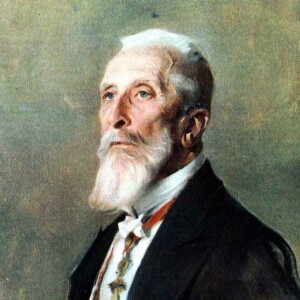
Kossuth was a hero of his time, a symbol of the fight against oppression, much like the later Gandhi or Mandela.
We have to speak in the name of a mourning nation before a world filled with emotional sympathy. Who is the man who, after half a century's absence, holds just the same place in the heart of his people as when he was its ruler? Who is the man to whom all nations pay a tribute of respect such as no material power can command, poor outcast tho he was?
Who was Louis Kossuth?
This question is being answered now. The features of the living are obscured by the mist of controversy; in its shadows we perceive but the flickering lamplight of transient opinion. But there comes the sharp wind of death; it dispels the mist; it blows out the lamps; the sun of history is rising. In the clearness of that night-born day we begin to see who Kossuth was.
Behold this nation before his hand was put to the wheel of her destinies. Was she a nation at all? Was she independent? Was she free? Was she a member of the great European family? In legal fiction, yes; but how in fact? In fact we see before us a shapeless multitude, torn by the conflicts of privilege and oppression, almost secluded from the great currents and the noble competition of the civilized world, having no independent government of its own, made subservient to a foreign power, uncertain even in its national self-consciousness, which now and then flashes up lightning-like in the patriotic outbursts of individuals, but has no firm hold on the masses; and, tho this people has a parliament, the power of that parliament hardly goes beyond the privilege of issuing impotent complaints—a picture, indeed, of decay and dissolution.
And now behold the present state of the country.
God be praised for what we became since. Tho very far still from the fulfilment of our destiny, we are a free nation strong in her unity, in the equality of her citizens; in the recognized power of her representation, a not unworthy sister of the greatest among civilized nations; conscious of our independence, we are governing ourselves in the spirit of liberty and progress; no aim appears too high for our legitimate ambition and undoubted possibilities. A picture, indeed, of hope and self-confidence.
Between these two states of a nation stands a man whose name was Louis Kossuth. Behold and compare: the difference says who he was; he found the former, he created the latter.
Not he alone; certainly not. It would be sin to be wanting in piety on that day devoted to piety, to express gratitude toward one great man by discarding gratitude due to other great men. There have been many of them as co-workers in the great work of regeneration; some with Kossuth, some against him, but animated all of them by the same holy spirit of patriotism.
Kossuth is one of the founders of our nation; he has made her secure of her independence and of her moral connection with the sister nations; he has made her an active agent in the great work of human progress and, by linking her destinies to the highest aspirations of our kind, has laid her future on a foundation of indestructible strength. His name is a symbol of our nation's worth to the world; of her racial individuality and of her task in universal history. There lies the secret of the veneration this name encounters throughout the world and of the gratitude and enthusiastic love it will never cease to pour forth from the hearts of our people.
No comments yet. Be the first to say something!